If you’re considering an LMS for your organization, understanding the differences between Moodle vs Totara is crucial. Moodle is widely adopted in educational settings, while Totara is tailored for corporate training. This article will break down the key features and differences to help you make an informed decision.
Key Takeaways
-
Moodle is a flexible, open-source LMS aimed at educational institutions, offering extensive plugin support and customizable options for diverse learning environments.
-
Totara Learn is based on Moodle and specifically designed for corporate learning, providing advanced features like multi-tenancy and compliance management to meet organizational needs.
-
The choice between Moodle and Totara should depend on the specific training objectives, audience, and budget of the organization, with Moodle more suited for education and Totara for corporate training.
Overview of Moodle LMS
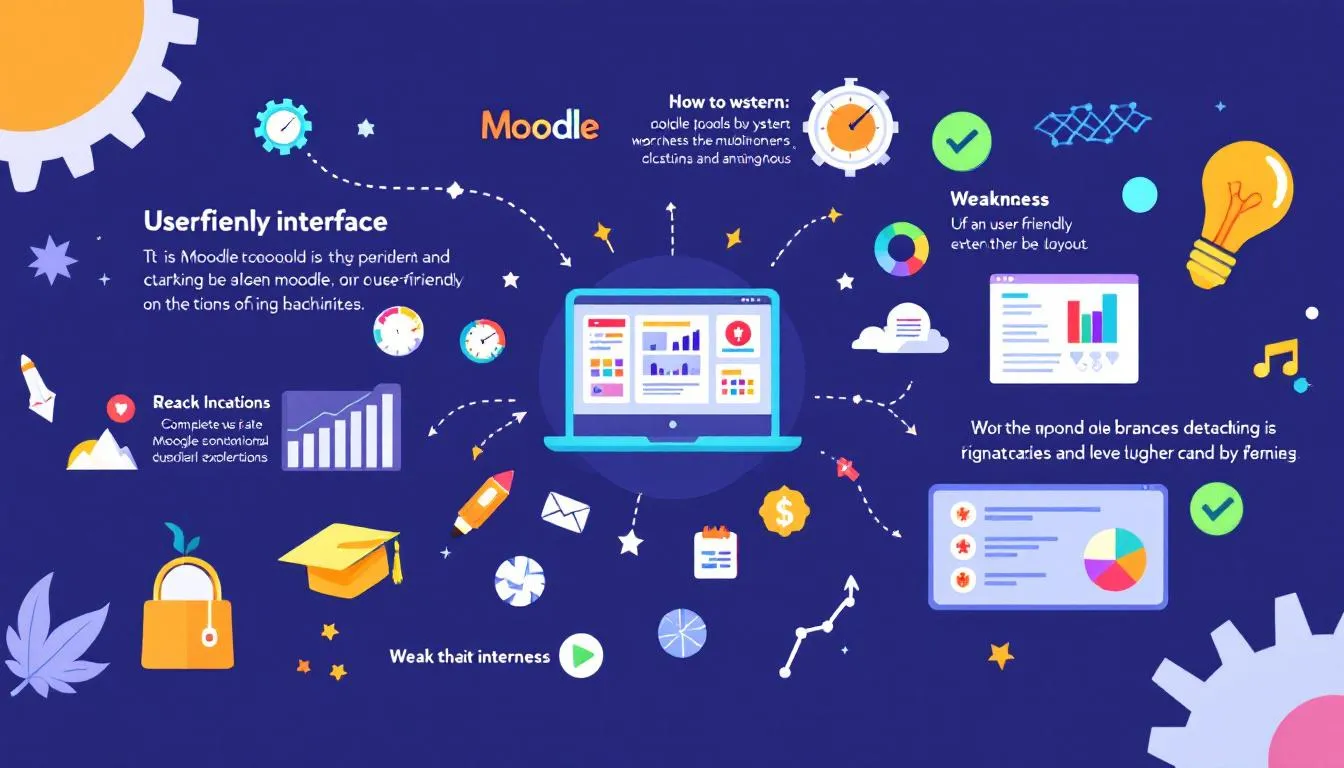
Moodle is an open-source learning management system designed for eLearning programs. Its flexibility and customizability make it a highly flexible LMS suitable for a wide range of educational settings. Moodle falls under several categories. It is identified as a Course Management System (CMS), a Learning Management System (LMS), and a Virtual Learning Environment (VLE). Its key features include course management, forums, messaging, assessments, and multimedia support. With over 202 million users worldwide, Moodle is a leading learning management systems in the field, demonstrating its global reach and popularity.
One of the standout features of Moodle is its extensive plugin support, with over 1000 plugins available to further customize and enhance its functionality. This open-source nature encourages continuous improvement by its global community of developers, ensuring that Moodle remains at the forefront of innovation.
Whether you’re managing a small classroom or a large educational institution, Moodle provides the tools and flexibility needed to create effective and engaging eLearning experiences.
Exploring Totara Learn
Totara Learn is an open-source distribution of Moodle, designed to enhance its core functionalities and cater specifically to corporate learning environments. The primary goal of Totara deployments is to ensure a seamless and successful implementation for users, making it a popular choice among organizations in diverse sectors such as technology and healthcare. Totara enhances the overall eLearning experience by enabling organizations to create tailored learning paths and track learner progress accurately.
One of the key advantages of Totara is its multi-tenancy capability, which allows different brands or departments to operate under a single platform while maintaining personalized settings. This feature, combined with its ability to support complex organizational structures through hierarchies and performance management features, makes Totara a powerful tool for large organizations.
With its focus on corporate learning, Totara Learn offers a suite of tools designed to support employee growth and compliance management, setting it apart from Moodle.
Key Differences between Moodle and Totara
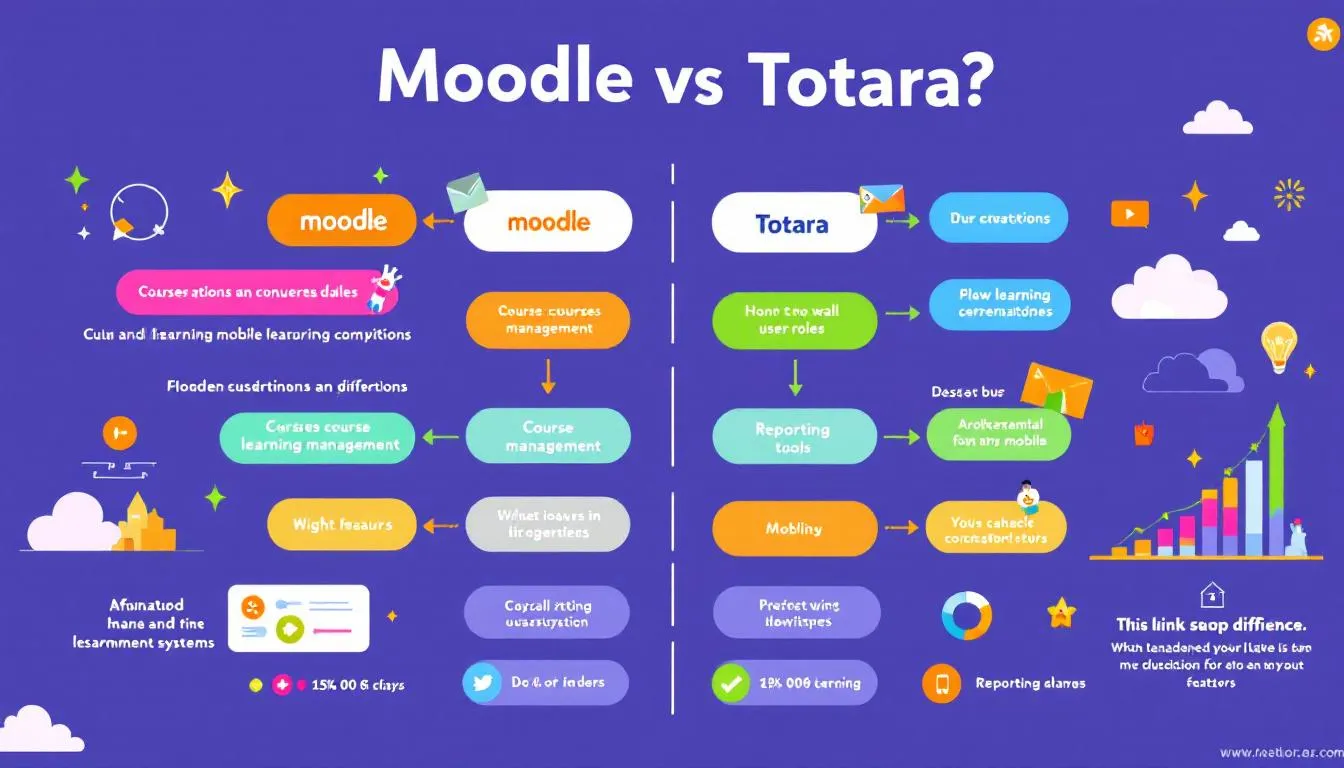
While both Moodle and Totara are open source software platforms, they cater to a difference in audiences and have distinct functionalities. Moodle is primarily targeted at educational environments, whereas Totara is tailored for corporate learning needs.
Totara offers enhanced functionality for organizations seeking robust corporate learning solutions, including advanced tracking features and compliance management. The following subsections will delve into specific aspects where Moodle and Totara differ, providing a detailed comparison to help you decide which platform is best suited for your organization.
Course Management Capabilities
When it comes to course management capabilities, both Moodle and Totara offer a range of features to help manage and track course content:
-
Moodle provides basic tracking features, allowing educators to monitor student progress and manage course activities efficiently.
-
Totara enhances this by enabling tracking of learning progress across multiple courses more efficiently.
-
Totara includes features such as records of prior learning and notifications about course activity completion, improving the overall course management experience.
Additionally, while Moodle’s course management features are similar and interchangeable with those in Totara, the latter offers more customization options. This enhanced customization allows organizations to tailor their learning programs more precisely to meet specific needs. Whether it’s the ability to access and manage multiple courses or advanced grading and assessment tools, Totara’s course management capabilities provide a competitive edge in corporate learning environments.
Customization and Personalization
Customization and personalization are crucial for creating a tailored learning experience. Moodle supports over 500 plugins, allowing for significant customization to meet diverse learning requirements. However, Totara offers even more extensive customization solutions, particularly in dashboard personalization and creating tailored learning paths based on specific user roles. This adaptability enhances the overall usability and branding of the platform, making it a powerful tool for organizations looking to create a unique learning environment.
Custom dashboards in Totara enable easy tracking of learner progress, facilitating the monitoring of training goals and milestones. Both Moodle and Totara support user interface customization, but Totara’s advanced options provide a more personalized experience for learners and administrators alike. This level of customization is particularly beneficial for organizations that need to align their LMS with their brand and specific training requirements.
Audience and User Management
Effective audience and user management are essential for delivering targeted and relevant learning experiences. Moodle offers basic user management features, allowing educators to manage students and course enrollments. In contrast, Totara provides dynamic and rule-based audience management, enabling personalized learning experiences based on skills and competencies. This advanced segmentation enhances user targeting and ensures that the right content reaches the right learners.
Totara’s tools for detailed role-based access make it more effective for organizational needs, providing a higher level of control over user permissions and access. This capability is particularly useful for large organizations with complex structures, where different departments or teams require specific training programs.
Audience management is crucial in an LMS, as it allows for the delivery of targeted and relevant learning experiences, ultimately enhancing the overall effectiveness of the training program.
Compliance and Certification Management
Compliance and certification management are critical components of corporate learning environments. Totara includes in-built functionality for structuring training and compliance programs, making it easier for organizations to ensure that their employees stay up to date with mandatory training requirements. Competency frameworks in Totara enable organizations to link specific courses to job roles, aiding in skill assessment and development. This feature is particularly beneficial for compliance management, as it ensures that learners are meeting the necessary standards and qualifications.
Additionally, Totara’s appraisal functionalities help organizations provide structured feedback to their employees, further enhancing the learning experience. Learning plans in Totara specify mandatory courses for employees based on their roles or organizational needs, ensuring that all necessary training is completed in a timely manner.
While Moodle offers basic compliance tracking features, Totara’s advanced tools make it a more robust solution for organizations with stringent compliance requirements.
Multi-Tenancy Support
Multi-tenancy support is a key advantage for organizations with multiple departments or brands. Totara offers a suite of tools for extended enterprise and multi-tenancy, allowing many clients to manage multiple departments effectively. This capability facilitates distinct branding and access needs for different departments, making it a powerful tool for large organizations.
In contrast, Moodle’s single-instance structure does not support the same level of departmental separation in the workplace, making it less suitable for organisation’s with diverse departments.
Totara’s multi-tenancy support allows for the creation of separate learning environments within a single platform, ensuring that each department or brand can operate independently while maintaining centralized control. This feature is particularly beneficial for organizations looking to streamline their training programs and maintain consistency across different teams or locations.
Social and Collaborative Learning
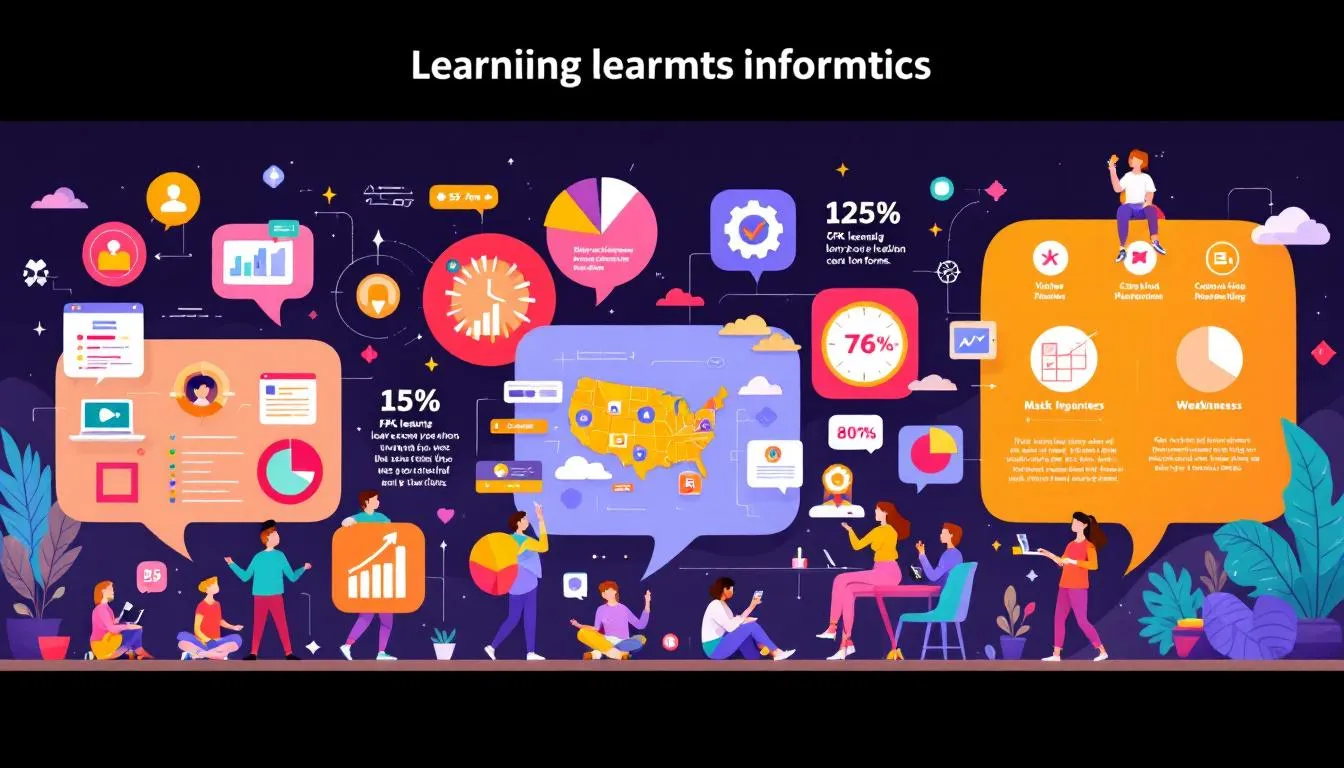
Social and collaborative learning are essential for fostering engagement and interaction among learners. Totara Learn’s product suite includes components like Totara Engage, which aids in social learning through integration with platforms like Microsoft Teams and Slack. Both Moodle and Totara offer features such as forums and chats to start conversations within the LMS, enhancing opportunities for social interaction.
Social engagement facilitated by these features encourages better learning retention and engagement, as learners can discuss course content, share insights, and collaborate on tasks. For example, discussion forums can be used to facilitate cohort-based themes, where learners can participate in group activities and collaborative projects, highlighting the benefits of such interactions and groups.
This approach not only enhances the learning experience but also helps build a sense of community among learners, making the training process more enjoyable and effective, providing a significant benefit to improve performance for a good reason.
Analytics and Reporting Tools
Analytics and reporting tools are crucial for tracking learner progress and assessing the effectiveness of training programs. Moodle includes robust reporting tools that track learner progress and performance analytics, helping educators identify at-risk learners and adjust their teaching strategies accordingly.
Totara offers more advanced reporting features, including:
-
Custom report builders
-
Graphical reporting to enhance data presentation
-
Scheduled custom reporting that allows reports to be generated at set intervals, providing administrators with timely insights into learner engagement and performance.
Totara also features reporting dashboards that offer a comprehensive view of learning metrics, making it easier for organizations to monitor and improve their training programs. While both platforms support built-in admin and course reports, Totara’s advanced customization options provide a higher level of detail and flexibility, making it a superior choice for organizations with complex reporting needs.
Gamification Features
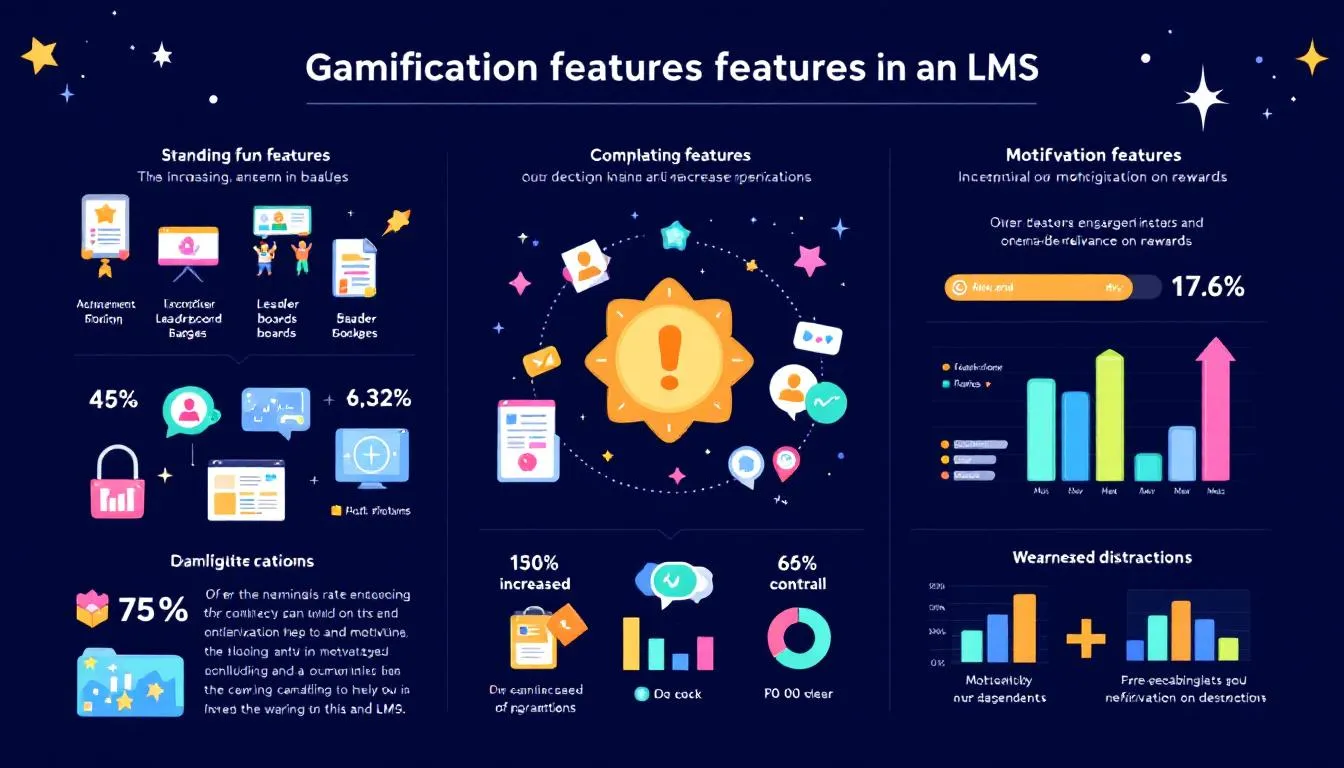
Gamification features can significantly enhance learner engagement and motivation by introducing interactive and competitive elements into the learning process. Totara incorporates gamification elements such as digital badges and certificates, which can be customized and shared by learners to celebrate their achievements. These features not only provide a sense of accomplishment but also encourage learners to complete their training programs and strive for excellence.
While both platforms offer gamification features, Moodle’s offerings are generally simpler and do not include the specific enhancements seen in Totara. For example, Totara supports the creation of leaderboards to foster a competitive learning environment, further motivating learners to engage with the content and perform well.
Incorporating gamification elements results in a more dynamic and engaging learning experience, leading to improved training outcomes.
Integration and Extensibility
Integration and extensibility are important factors to consider when choosing an LMS, as they determine how well the platform can adapt to changing needs and integrate with other systems. Both Moodle and Totara can integrate with various third-party tools to enhance their functionality. However, Totara offers more extensive integration options with external repositories, facilitating seamless access to diverse learning content.
For example, Totara Learn provides various forum types to enhance online interactions, allowing for essential discussions across diverse locations. The Q&A forums in Totara encourage scenario-based discussions, promoting critical thinking and engagement. Additionally, chat rooms in Totara can be created for real-time discussions, and these can be recorded for later review, fostering a collaborative environment.
Both two platforms evolve rapidly, often adopting features from each other to enhance their integration capabilities and meet the needs of modern learners in the future.
Content Creation and Management
Effective content creation and management are essential for delivering high-quality eLearning experiences. Both Moodle and Totara support SCORM and H5P, facilitating the creation of interactive course content. The SCORM support in both platforms enables the uploading of e-learning content packages, ensuring compatibility with industry standards. Additionally, integration with H5P allows for the creation of engaging and interactive content, enhancing the overall learning experience.
Moodle and Totara can accommodate various content types, including static files and multimedia elements, providing educators with the flexibility to create diverse and engaging learning materials. This capability is particularly important for organizations looking to create dynamic and interactive training programs that cater to different learning styles and preferences.
By supporting a wide range of content types, both platforms enable organizations to deliver comprehensive and effective eLearning experiences.
Assessment and Evaluation Methods
Assessment and evaluation methods are crucial for measuring learner progress and ensuring the effectiveness of training programs. Both Totara and Moodle provide a range of tools and features for scoring and celebrating success, such as quizzes and digital badges. Totara Learn includes a robust quiz engine, allowing for the creation of various quiz types with automated grading, which enhances the assessment process.
In addition to quizzes, Totara allows course managers to manage both online and offline assignments with customizable submission parameters. The quiz tool in Totara offers options for instant or deferred feedback, as well as settings for attempt limits, providing flexibility in the assessment process.
By integrating quizzes as a gamification element, Totara enhances engagement and motivation among learners, ultimately leading to better training outcomes. Both platforms’ assessment and evaluation methods provide the necessary tools to support a comprehensive and effective learning experience.
Globalization and Multilingual Support
In today’s globalized world, having a learning management system that supports multiple languages and regions is essential. Both Moodle and Totara fully support globalization initiatives, making them suitable for organizations with a global presence. They facilitate global training by streamlining course delivery across various regions, ensuring that learners in different locations receive consistent and high-quality training.
Moodle and Totara feature extensive language options, enabling organizations to provide training materials in various languages and address cultural differences in training materials. This capability ensures that learners can access content in their preferred language, improving comprehension and engagement.
Supporting globalization and multilingual initiatives allows both platforms to deliver effective and inclusive training programs across geographical boundaries.
Client Support and Community
Client support and community resources play a crucial role in the successful implementation and ongoing use of an LMS for clients. Both Moodle and Totara prioritize customers’ satisfaction with unlimited support and collaborative processes, ensuring that users receive the assistance they need. They feature a variety of support resources, including tutorials, webinars, and user forums, to help users navigate the platforms and troubleshoot issues.
Moodle’s support includes a comprehensive knowledge base and guidance for troubleshooting through its vast community network. Similarly, Totara provides access to an extensive community of users and developers, enhancing collaboration and shared learning.
Totara also encourages user participation through community events and initiatives that foster engagement and feedback. These robust support systems ensure that users can maximize the potential of their chosen LMS and continuously improve their eLearning programs.
Choosing the Right LMS for Your Organization
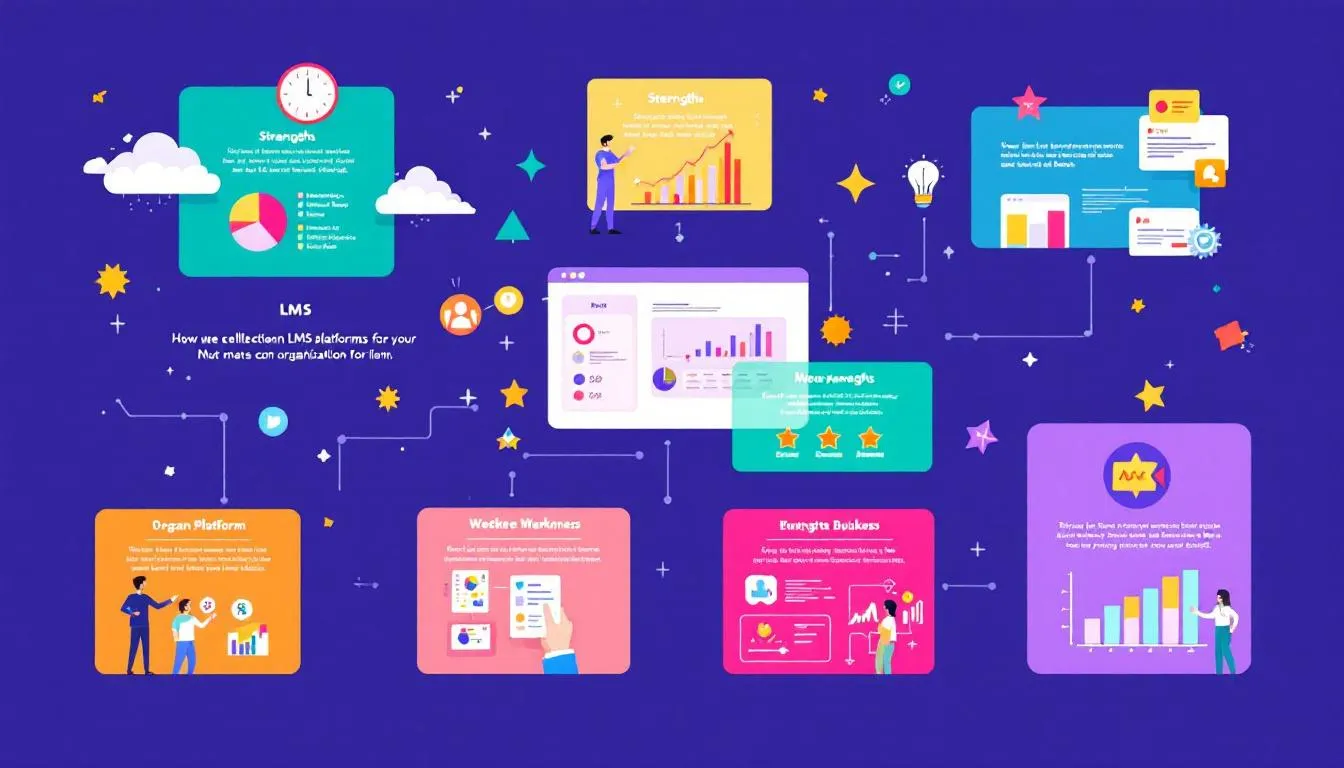
Choosing the right LMS providers depends on various factors, including:
-
The learning environment
-
Specific requirements
-
Budget
-
Level of support
Moodle is primarily aimed at educational institutions, making it an ideal choice for schools, universities, and other academic settings. Its flexibility, extensive plugin support, and global reach make it a powerful tool for creating effective eLearning programs in the education sector. When considering moodle vs other platforms, its advantages become even more apparent.
On the other hand, Totara is tailored for corporate training environments, offering advanced features such as compliance management, multi-tenancy support, and extensive customization options. Organizations looking for a robust corporate learning solution should consider Totara vs totara for its ability to support complex organizational structures and deliver tailored learning experiences.
Ultimately, the decision between Moodle and Totara should be based on the organization’s specific needs and goals, ensuring that the chosen LMS aligns with its training objectives and budget constraints.
Summary
In summary, both Moodle and Totara offer powerful solutions for different eLearning needs. Moodle’s open-source nature, flexibility, and extensive plugin support make it a leading choice for educational institutions. Its global reach and community-driven development ensure continuous improvement and innovation. On the other hand, Totara’s enhancements over Moodle, such as advanced compliance management, multi-tenancy support, and extensive customization options, make it a robust solution for corporate training environments.
Choosing the right LMS for your organization involves considering specific features, support levels, and budget constraints. By understanding the key differences between Moodle and Totara, organizations can make an informed decision that aligns with their training goals and objectives. Whether you’re looking to enhance educational programs or deliver effective corporate training, both platforms offer the tools and capabilities needed to succeed in the ever-evolving world of eLearning.
Frequently Asked Questions
What are the main differences between Moodle and Totara?
Moodle focuses on educational settings, whereas Totara caters to corporate learning, featuring advanced tools for compliance management, multi-tenancy, and extensive customization. This distinction makes Totara more suitable for organizations looking to enhance their corporate training programs.
Can Moodle and Totara integrate with third-party tools?
Yes, Moodle and Totara can integrate with various third-party tools, with Totara providing more extensive options for seamless access to diverse learning content. This capability enhances the overall functionality and user experience of both platforms.
How do Moodle and Totara support social and collaborative learning?
Moodle and Totara enhance social and collaborative learning through features like forums and chat functionalities, fostering discussions and interactions among users. Additionally, Totara Learn offers integration with tools like Microsoft Teams and Slack via Totara Engage, further promoting social learning.
What gamification features are available in Moodle and Totara?
Moodle offers basic gamification features like quizzes, while Totara enhances engagement through digital badges, certificates, and leaderboards. For a more robust gamification experience, Totara is the preferred choice.
How do Moodle and Totara handle globalization and multilingual support?
Moodle and Totara effectively support globalization and multilingual needs by offering extensive language options, allowing organizations to customize training materials for diverse cultural contexts. This capability ensures that learning experiences are accessible and relevant to all users.


